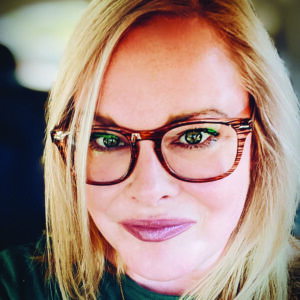by Robin Freeman Beaudoin | photo by Chellie Bowman
Rick Mula is an Equal Justice Works Fellow (sponsored by the Mansfield Family Foundation) with the Southern Poverty Law Center (SPLC) in Montgomery, Alabama. In 2016, Mula visited Memphis and presented the “Know Your Rights: Student’s and LGBTQ Rights at School” training to the group known as MAGY, Memphis Area Gay Youth. It was at the MAGY presentation that Mula met Cameron Rogers, a transgender, midteen, MAGY member.
Just a couple of years before the meeting with Mula, Rogers came out to his parents as transgender. He was 13. With the strength to know and be who he was inside, he joined MAGY where he found a warm group of friends who accepted him for who he was. Mula was intrigued by Rogers’ story as a young transgender student, and wrote an article about him.
In 2016, Mula asked Rogers to assist and give testimony as part of a larger group of transgender youth during the Gavin Grimm case. The Fourth Circuit Court case (G.G. vs. Gloucester County School Board) involved transgender student Gavin Grimm who sued his Virginia school district over the loss of his permission to use the men’s room – the restroom that fit his identity. The case was sent to the U.S. Supreme Court to be determined, but in March was returned to the lower court to be reconsidered after the Departments of Justice and Education rescinded a Title IX guidance that clarified protections for transgender students.
Rogers said that he could relate to this kind of discrimination, and like Grimm, has decided to strive for positive change in the community in an activist role with a support system including his girlfriend, friends and family. Now age 17, Rogers attends Overton High School where he has hosted a drive for OUTMemphis to give hygiene supplies to the LGBT youth who visit the community center. “I go to Perpetual Transition, their trans-support group on Mondays.”
Rogers also sings in the school chorus, works at a local bowling alley, and remains involved in MAGY activities. As for the future, he realizes how much things could change as part of the Grimm case and hopes to attend school and major in photography. Rogers wants to use his art as a medium to advocate and educate people on what it means to be queer. “My love of the arts was prominent in my life. Even as a young child I was obsessed with photography and painting,” says Rogers.
“Bullying is definitely an issue, especially in the south. Kids have this idea of what being gay or queer means to them, and they learn it from their parents. It all starts with parents having this very odd idea of what it is to be queer,” Rogers explains.
To educate family and friends who don’t necessarily understand their LGBT loved ones, Rogers suggests an open dialogue and research. “Ask other people about something you don’t know. Just come forward and say, ‘I don’t know a lot about this, so I can’t form a real opinion about it.’ It’s more important” he says, “to form your own educated opinion than to accept blindly what you hear from others.”
Looking to the future, Rogers thinks he will stay close to home and work in the South to become a social advocate. “MAGY has been amazing. I’ve met a lot of great people, and I’ve been given a lot of opportunities I wouldn’t have if I didn’t go. We do a wide variety of things – we have game nights, guest speakers, and nights to learn about our legal rights,” he says.
He wants fellow transgender youths to know they are not alone. “Don’t give up. There are lots of reasons to give up in life, but never give in to that reason. Always keep pushing yourself forward.”




